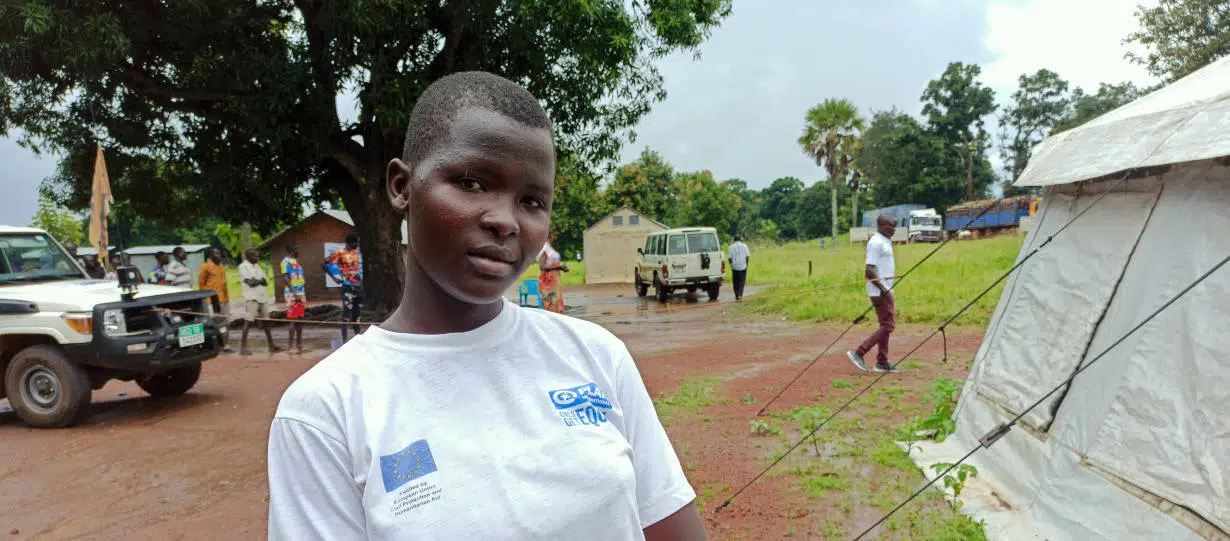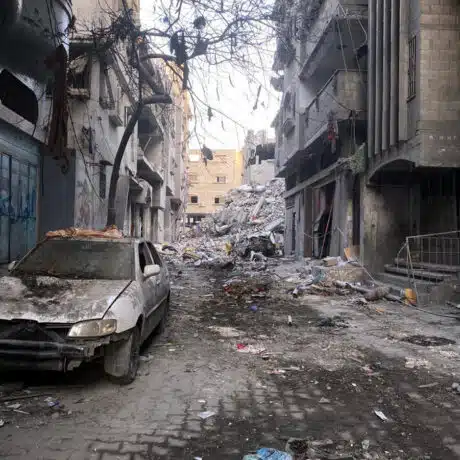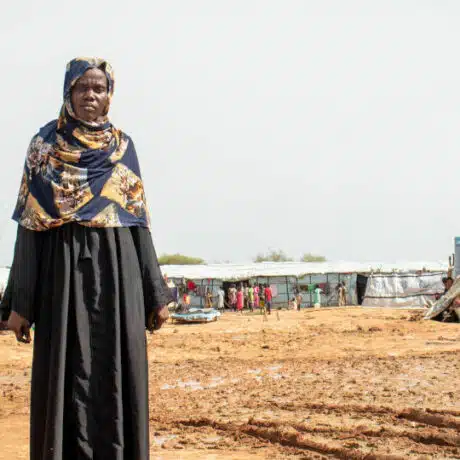News and Stories - Emergencies - 3 October 2022
Cash transfers help girls stay in school in South Sudan

For a teenage girl living in a community which has been ravaged by conflict and is now dealing with a protracted hunger crisis, life can be tough. But for 17-year-old Alice, this is her reality.
As the main breadwinner in her family and the one responsible for the welfare of her elderly mother and brother, Alice has to decide every day whether to go to school to try and fulfil her dream of becoming a nurse, or stay at home to make and sell mandazi (a fried bread snack) which brings the family a little income.
“I do not believe that I am going to finish school because it is not easy to pay the school fees,” explains Alice. “The money that I get from selling mandazi is only enough to buy food for the day and I have to work every day to make money for food and pay the school fees.”
When Alice was born in 2005, everything was going well until her father’s death while she was still a toddler. She and her siblings were raised by their single mother who had them later in life. One by one, her older sisters got married and left home, then conflict broke out in 2013, forcing Alice, her brother and mother to seek refuge in a displacement camp where they lived for some time.
When Alice was just 14, her mother fell ill and she had to take on the responsibility for the whole household. Since then, she has had to juggle multiple responsibilities.
“My mother is old. I take care of my mother but we have gone without having much food for so long,” says Alice. “At the moment, we only drink tea for lunch and then eat a proper meal at dinner time because we can’t afford to eat three meals a day.”
Recently, Alice and her mother have received support from Plan International who is responding to the hunger crisis in Central Equatoria, Eastern Equatoria and the Lakes States. Our cash transfer program is assisting vulnerable households who have been hardest hit.
Each household receives two cash payments totalling SSP 97,500 (USD 150) which they can use to spend on food or other essentials. Alice says the cash support has been lifesaving.
We’ll use this money to buy flour, dried fish and other necessities which should last us for a month, at least- Alice
In October 2022, Alice received her second instalment, which means for the next few months, she will be able to concentrate in class, safe in the knowledge that there is enough food to eat at home and she can pay her school fees.
For adolescent girls in South Sudan living through the hunger crisis, this support is exactly what is needed at the moment, enabling them to focus on their education and giving them the time and energy to study.
While this money is enough to take Alice and her family through to the end of November, beyond that, more investment is needed to support those most in need until the current situation stabilises.
According to the World Food Programme, 8.3 million people in South Sudan are facing severe food insecurity, with two million children under five and women facing acute malnutrition.
An immediate scale-up of humanitarian assistance is needed to save lives. You can help:





